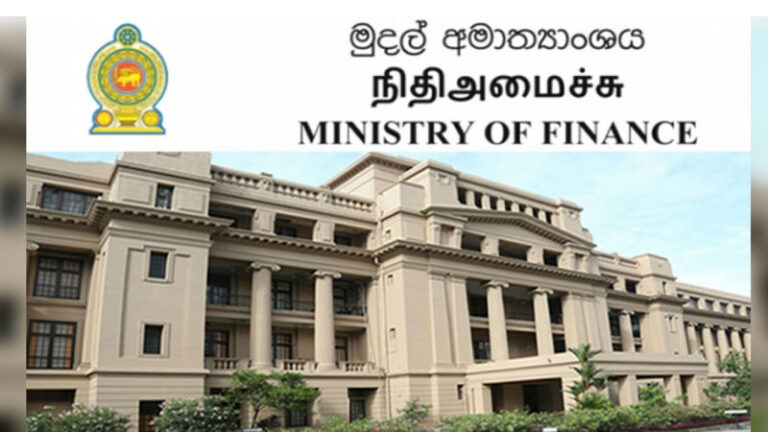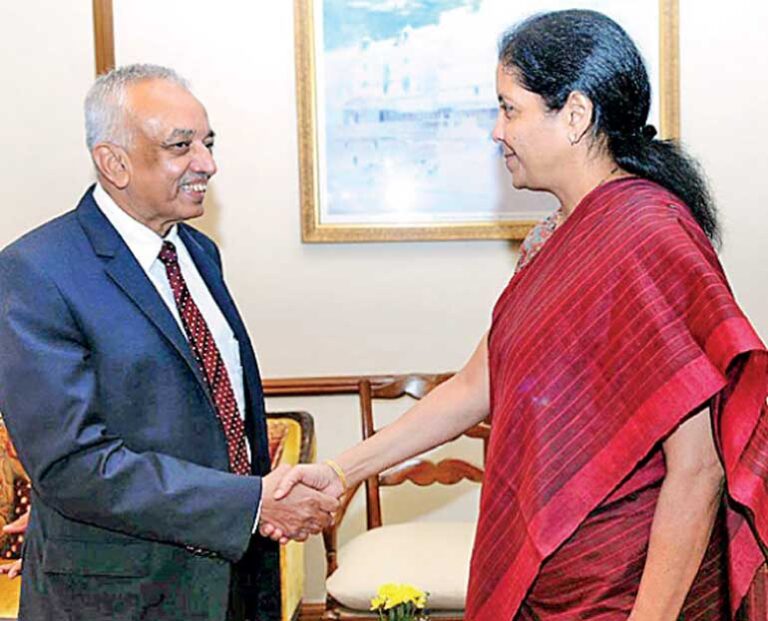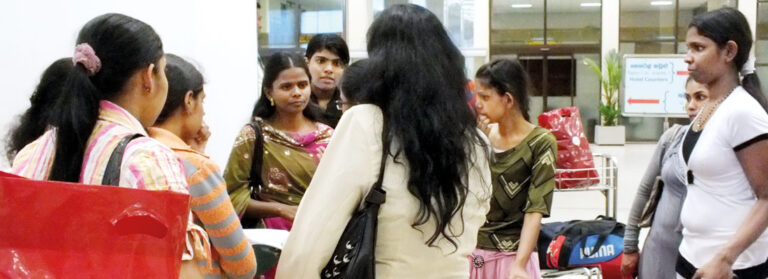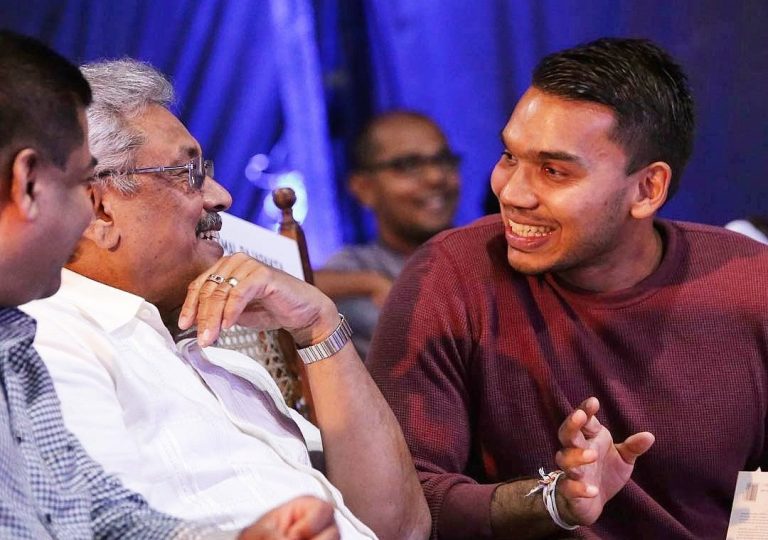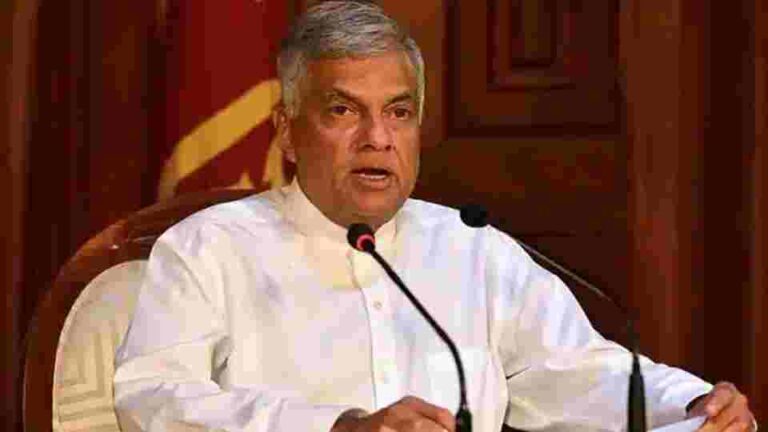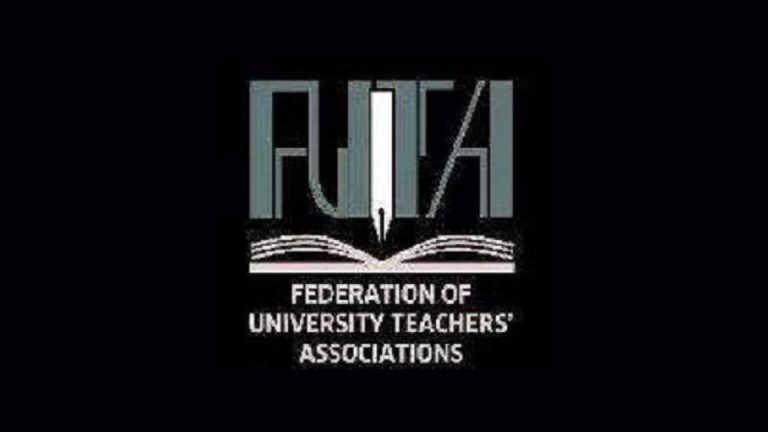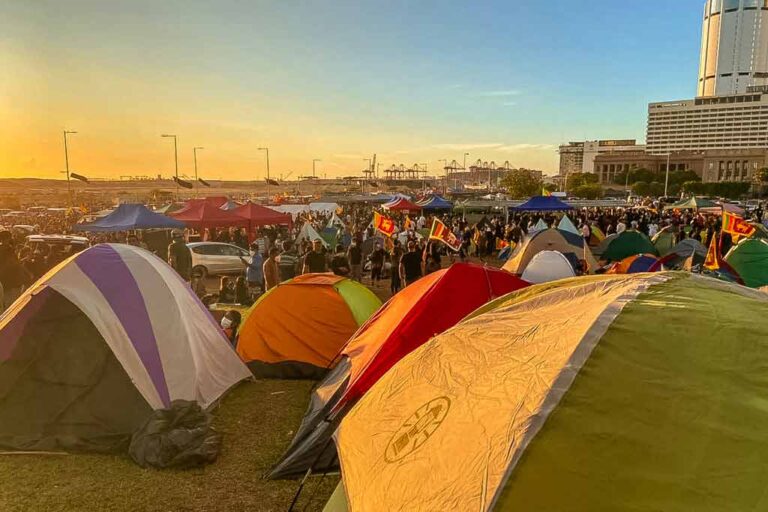Sri Lanka is continuing to spend a substantial amount of its earnings for its interest payment on public debt this year, Finance Ministry data shows.
This will be burden for the interim budget 2022 which will be presented in parliament next month in which the total expenditure is estimated to be more than double that of the income
The interest expenditure on public debt will be the largest item in all previous budgets presented in parliament during the past several decades up to now, senior official of the finance ministry divulged .
Sri Lanka’s debt-to-GDP ratio is increasing alarmingly owing to high interest payments, limited access to global financial markets, and dwindling revenues.
The overall revenue performance of the Government improved during the first four months of 2022 benefiting from the mobilisation of both tax and non-tax revenue, compared to the subdued revenue performance of the same period in 2021
According to finance ministry provisional data, the interest payment will come down to 20 -30 percent of the revenue this year from the previous level of 66 to 70 percent as the treasury will have to service only domestic borrowings following the decision to suspend foreign debt servicing.
He added that it is high time to take the initial step towards halting the seven decade practice of financing national budgets through borrowings although it will be a gigantic task.
High rise in the interest cost-to-revenue ratio was driven primarily by the decline in government revenue.
High interest payment also reduces spending on priority areas such as education, health, and social protection.
Interest payments, along with salaries and pensions, are an example of Sri Lanka’s high levels of non-discretionary public expenditure, which are not easy to reduce in the short term.
Therefore, revenue enhancement measures will play a key role in efforts to curtail the budget deficit.
The total expenditure on interest payments including both domestic and foreign debt increased by 16.5 percent to Rs. 426.8 billion in the first four months of 2022; compared to Rs. 366.2 billion in the same period of 2021, latest finance ministry fiscal report revealed
Interest payments on foreign debt fell by 8.1 percent to Rs. 84.9 billion in the first four months of 2022, compared to Rs. 92.4 billion in the same period of 2021 whereas interest payment for domestic debt increased by 24.8 percent to Rs. 341.9 billion in the first four months of 2022 from Rs. 273.8 billion in the same period of 2021.
Sri Lanka’s interest cost increased by Rs. 78 billion compared to 2019, reaching Rs. 980 billion in 2020. However, government revenue declined even further by Rs. 522 billion compared to 2019, to Rs. 1,368 billion in 2020, finance ministry data revealed.
To be more exact out of every Rs100 in government revenue Rs 30 to Rs 67 is drain off to service the interest on public debt during the past several years., ministry official explained expressing optimism this will reduce to some extent this year.
According to provisional estimates the interest payment will come down this year following the government’s decision to suspend foreign debt servicing. .
Sri Lanka has the highest interest cost as a percentage of government revenue, reaching an unprecedented level of 71.7percent in 2020.while treasury paid more than two-thirds of its revenue as interest cost.
In 2020, Sri Lanka’s interest cost increased by Rs. 78 billion compared to 2019, reaching Rs. 980 billion in 2020.
However, government revenue declined even further by Rs. 522 billion compared to 2019, to Rs. 1,368 billion in 2020.
Sri Lanka continues spending heavily for public debt interest payment
India and Sri Lanka expedite efforts to finalise ETCA soon
Indian and Sri Lankan authorities are now working towards the finalisation expeditiously of the much delayed and widely debated Economic and Technology Co-operation Agreement (ETCA), which will out strip the existing free trade agreement (FTA) entered in to in March 2000, Trade Ministry sources confirmed.
The conclusion of ETCA negotiations has been delayed for five and half year period since 2016, as it was opposed by professional bodies, particularly in the IT and healthcare sectors who alleged that it would give preference to Indian workers displacing skilled Sri Lankans.
It was initially scheduled to be signed in 2016 when President Ranil Wickremesinghe was the prime minister at that, time; senior trade ministry official said adding that it is expected to address larger issues of market access and asymmetry in two-way trade.
According to the Commerce Department of the Trade Ministry, there has been no progress in negotiations between India and Sri Lanka with regard to the controversial ETCA since the last round of bilateral talks in October 2018.
Preliminary discussions on the ETCA were held in 2015 during the Fourth Commerce Secretary-level talks between the Indian and Sri Lankan sides in New Delhi where this agreement was proposed.
The high ranking official of the Commerce Department noted that 11 rounds of bilateral negotiations were conducted, with the first round held in August 2016 and the last and 11th round in October 2018.
The 12th round of negotiations which were scheduled to be held in September 2019 was postponed pending cabinet approval.
This was due to a new regulation introduced by the then Ministry of Development Strategies and International Trade (MoDSIT), which had made Cabinet approval compulsory to conduct negotiations for any trade agreement, he explained.
The importation of good from India to Sri Lanka was at a very low level under the free trade agreement during the past few years due to heavy taxes on Indian imports which was not covered under the FTA.
Further Indian imports were subjected to other levies and duties in addition to customs duties such as the cess levy and the Ports and Airports Development Levy (PAL), he pointed out.
However, the growth of exports to India from Sri Lanka has been sluggish due to the non-tariff barriers imposed by the Indian authorities, which include un necessary regulatory requirements, he added.
The ETCA initiative follows unfruitful negotiations on a Comprehensive Economic Partnership Agreement (CEPA) between the two countries.
The India-Sri Lanka Free Trade Agreement of 1998 was followed by efforts towards CEPA to liberalise trade in services and investment starting in the mid-2000s.
However, the CEPA negotiations dragged on for nearly a decade in the face of wide spread opposition particularly by the business community and finally the then government had to abandon the negotiations under pressure.
02 dead from three shootings reported in 12 hours
Yesterday (04) three shooting incidents were reported within 12 hours and two people were killed.
The first incident was reported from Mt. Kalkissa Court and although the shot was aimed at a person in the dock of that court, it did not hit him. It is said that the shooter had fled.
Yesterday afternoon, there was a shooting inside a house in the Lunugamwehera area and a 34-year-old man died as a result, the police said.
And last night, there was a shooting in a restaurant in the Ahangama area. Police said that one person was killed and another was injured.
In the past two months, more than 20 such shooting incidents were reported and many more crimes have been witnessed.
Sri Lankan migrant workers get additional duty concessions
Sri Lanka government has devised a methodology to provide additional duty concessions extended for Sri Lankan migrant workers based on the amount remitted through official banking channels.
The objective is to boost foreign exchange inflows through the banking system to overcome the foreign exchange crisis, Labour and Foreign Employees Minister Manusha Nanayakkara disclosed.
As per the Minister, the allowance will be provided to be utilised upon the arrival of the migrant workers at the airports.
“The ministry will maintain the existing system, which extends a duty concession up to US$ 187 to any Sri Lankan who returns to the country in less than 90 days.
In addition to that, migrant workers returning to Sri Lanka between 90-365 days will be provided with an allowance of $ 625, while those returning after over a year will be given an allowance of $ 1,750,” he said.
However, following the new Cabinet decision, the Ministry has now introduced three categories as Silver, Gold, and Gold plus.
“Those who have remitted $ 2,400 within one year via official banking channels will be included in the silver category. Among this category, those returning within 90 days will be provided with an allowance of $ 787, those returning within 90-365 days $ 1,252, and those after one year $ 2,350,” Nanayakkara said.
He also said migrant workers who have remitted $ 4,800 for a period of one year through official banking channels, those below 90 days will be provided with an allowance of $ 1,175, those between 90-365 days $ 1,585, and those over a year will be $ 2,710.
“Migrant workers who have remitted $ 7,200 for one year will be included in the gold category. Among this category, those with less than 90 days will be provided with an allowance of $ 1,627, those between 90-365 days with $ 2,650, and those over a year $ 3,190,” he added.
The Minister said migrant workers who have remitted $ 12,000 will fall under the gold plus category.
“Those with less than 90 days will be provided with an allowance of $ 2,587, those between 90-365 days with $ 3,025, and those over a year will be provided with an allowance of $ 4,150,” he said.
He also said for migrant workers who have remitted $ 24,000 for a period of one year, those with less than 90 days will be provided with an allowance of $ 4,985, those between 90-365 days with $ 5,425, and those over a year $ 6,550.
The Cabinet of Ministers also approved providing a licence to import an electric vehicle equivalent to 50% of remittances.
If a migrant worker had remitted over $ 3,000 either to their bank account or to family members, they can buy an electric motorcycle equivalent to half of the money sent. The minimum amount is $ 3,000 and this permission is not available for the purchase of three-wheelers,” he explained.
Accordingly, the Government has allowed importing electric vehicles if a migrant worker has remitted $ 20,000 to a maximum of $ 65,000.
“These imported vehicles should be in the range of 300-500 km. The electric vehicles must be charged by a solar-assisted power charger installed by themselves without burdening the national power grid,” Nanayakkara said.
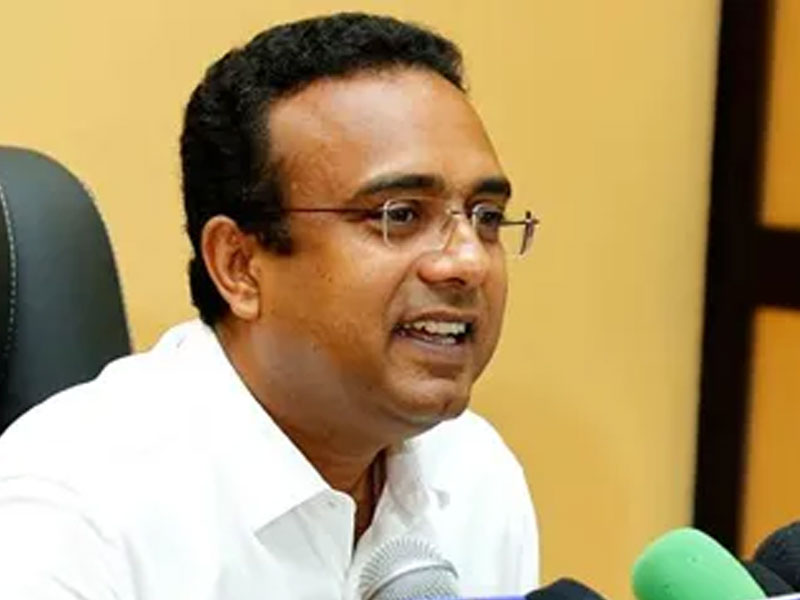
A riot cannot decide the future of the Rajapaksas – Namal
Parliament member Namal Rajapaksa emphasizes that a riot cannot decide the political future of the Rajapaksas and he will not allow such a thing at all.
Namal Rajapaksa expressed these views in an interview in a newspaper.
Dinesh Weerakkodi appointed as the new chairman of the Colombo Port City Economic Commission
Dinesh Weerakkodi has been appointed as the new chairman of the Colombo Port City Economic Commission.
A former chairman of Commercial Bank and Hatton National Bank, as well as a member of the board of directors of several leading private institutions, he is also a former chairman of the International Chamber of Commerce of Sri Lanka.
Also, he is currently working as the adviser on treasury affairs to President Ranil Wickramasinghe.
President Ranil announces the date of bringing the relief budget to Parliament
President Ranil Wickramasinghe says that the interim budget to be brought for this year will be presented to Parliament in the first week of September.
He has mentioned that he hopes to give relief to the people.
The President has stated this in a discussion held yesterday (04) afternoon with a group of MPs including Sri Lanka Freedom Party, Professor GL Peiris, Dallas Alahapperuma.
FUTA vehemently condemns the arrest of Ceylon Teachers Union Chairman Joseph Stalin
Federation of University Teachers Associations (FUTA) is appalled at the arbitrary arrest of Ceylon Teachers Union (CTU) Chairman and iconic education sector trade union leader Joseph Stalin. This is a continuation of the wave of state terror unleashed by the illegitimate Wickremaisnghe-Pohottuwa regime from the moment it assumed power – with the pre-dawn ‘attack’ on Gota Go Gama on 21st July. This is an insidious attempt to generate a sense of fear psychosis within social activists and society at large and a dangerous infringement of basic freedoms guaranteed by the constitution of Sri Lanka. It is truly a dark irony that Mr. Ranil Wickremasinge, the current Executive President, is on the Hansard record in parliament criticizing the arbitrary detention of Stalin under spurious COVID quarantine regulations back in 2020 during the anti KNDU struggle. Mr. Wickremasinghe went to the extent of stating that Sri Lanka is in danger of losing the European Union GSP Plus scheme because Mr. Stalin was an internationally admired education sector activist. Further, adding insult to injury Mr. Wickremasinghe delivering the ‘throne speech’ in parliament today as the Executive President repeatedly stated that he is committed to respecting the right to peaceful dissent even as the police force he commands sent 25 officers to the headquarters of CTU to arrest this iconic education sector activist – a man who is the epitome of peaceful but committed trade union activism.
In addition to Joseph Stalin a number of leading aragalaya activists have been systematically arrested under spurious charges over the last few days. This is a clear strategy to unleash state repression and terror and to create a culture of quietism and self-censorship where people will be reluctant to exercise their democratic right to dissent and protest. Clearly this is the strategy of a failed and repressive leader who is unable to deliver the economic stability he promised to the nation. The international image of the Wickramasinghe-Phottuwa regime is now under severe strain and Mr. Wickremasinghe’s much touted liberal credentials lie in tatters. Within this context it is doubtful that even the aid that was potentially coming Sri Lanka’s way from liberal states that respect human rights will be forthcoming. We remind the Wickremasinghe-Pohottuwa government that it has embarked on a dangerous and destructive anti-democratic path and to therefore immediately halt this repressive trend. We also remind the government that the wellbeing of Joseph Stalin and all those who have been arbitrarily arrested in the last few days lie with the authorities and to immediately release them and uphold the democratic fundamentals of the Democratic Socialist Republic of Sri Lanka.
Sri Lanka complies with ‘One China’ policy: President
A meeting was held between President Ranil Wickremesinghe and Chinese Ambassador to Sri Lanka Qi Zhenghong this (04) morning at the Presidential Secretariat.
The Chinese Ambassador offered his greetings to President Wickremesinghe and the two discussed about the maintenance of strong relations between the two nations, a statement by the President’s Media Division said.
Wickremesinghe reiterated Sri Lanka’s commitment to the principles of the United Nations’ conventions on sovereignty and territorial integrity and the island nation’s compliance with the ‘One China’ policy.
“Countries should refrain from provocations that further escalate current global tensions, and mutual respect and non-interference in the internal affairs of countries are important foundations for peaceful cooperation and non-conflict,” the meeting concluded.

MIAP
Police issue another announcement to Galleface protesters
The Police have announced to the protesters in Galleface to immediately remove the unauthorised constructions and crops in the Galleface Ground and the surrounding area belonging to the government and the Urban Development Authority.
The announcement was repeated by the Police team this (04) afternoon.
The Police had announced yesterday (03) that these withdrawals must be taken place before 05 pm on August 05 and that legal action will be taken against those who refuse to comply.
MIAP

